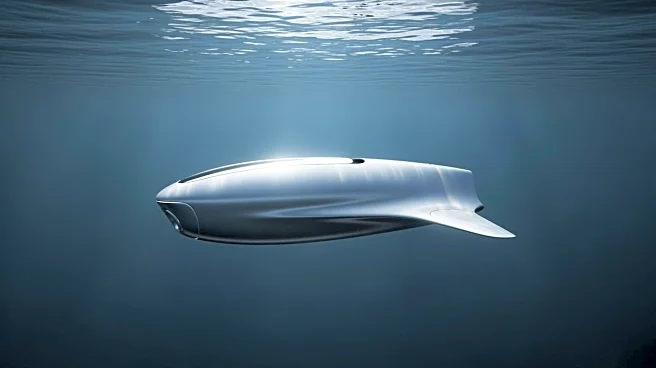What's Happening?
NATO is conducting tests of new underwater drones in the Baltic Sea, designed to detect submarines and protect undersea cables. Developed by German companies EUROATLAS and EvoLogics, the GreyShark drones can operate autonomously for up to four months.
These drones are silent, cost-effective, and capable of switching tasks without human intervention. Several NATO countries are interested in acquiring these drones to enhance their anti-submarine warfare capabilities. The Baltic Sea is a strategic area, with Russia's Kaliningrad exclave hosting significant military assets. Recent incidents of damaged cables in the region have raised concerns about hybrid warfare tactics, potentially involving Russia. NATO's Baltic Sentry initiative aims to bolster defense in the area, addressing threats from Russia's formidable submarine fleet.
Why It's Important?
The deployment of these drones is crucial for NATO's defense strategy in the Baltic Sea, a region of geopolitical tension due to Russia's presence. The ability to detect and counter submarine threats is vital for protecting critical infrastructure like undersea cables, which carry the majority of global data. The drones offer a cost-effective solution to fill gaps in NATO's military capabilities, especially as European nations increase defense spending in response to Russian aggression. The ongoing war in Ukraine has accelerated the shift towards unmanned systems, which can be mass-produced and deployed effectively against sophisticated platforms. This development underscores the importance of technological advancements in maintaining security and stability in Europe.
What's Next?
NATO countries are expected to continue investing in advanced defense technologies, including underwater drones, to counter potential threats from Russia. The alliance may further strengthen its presence in the Baltic Sea, enhancing surveillance and protection of vital infrastructure. As tensions with Russia persist, NATO's focus on unmanned systems and increased defense spending will likely continue. The outcome of the war in Ukraine will influence NATO's strategic decisions, particularly regarding the defense of Baltic nations. Political leaders and defense experts will closely monitor developments in the region, assessing the effectiveness of new technologies in deterring aggression.
Beyond the Headlines
The introduction of these drones highlights the evolving nature of warfare, where unmanned systems play a significant role in defense strategies. Ethical considerations regarding autonomous military technologies may arise, as these systems operate without direct human control. The reliance on drones also reflects broader shifts in military tactics, emphasizing cost-efficiency and adaptability. As NATO adapts to new security challenges, the integration of advanced technologies will shape future defense policies and international relations. The geopolitical dynamics in the Baltic Sea will continue to be a focal point for NATO's strategic planning.
















